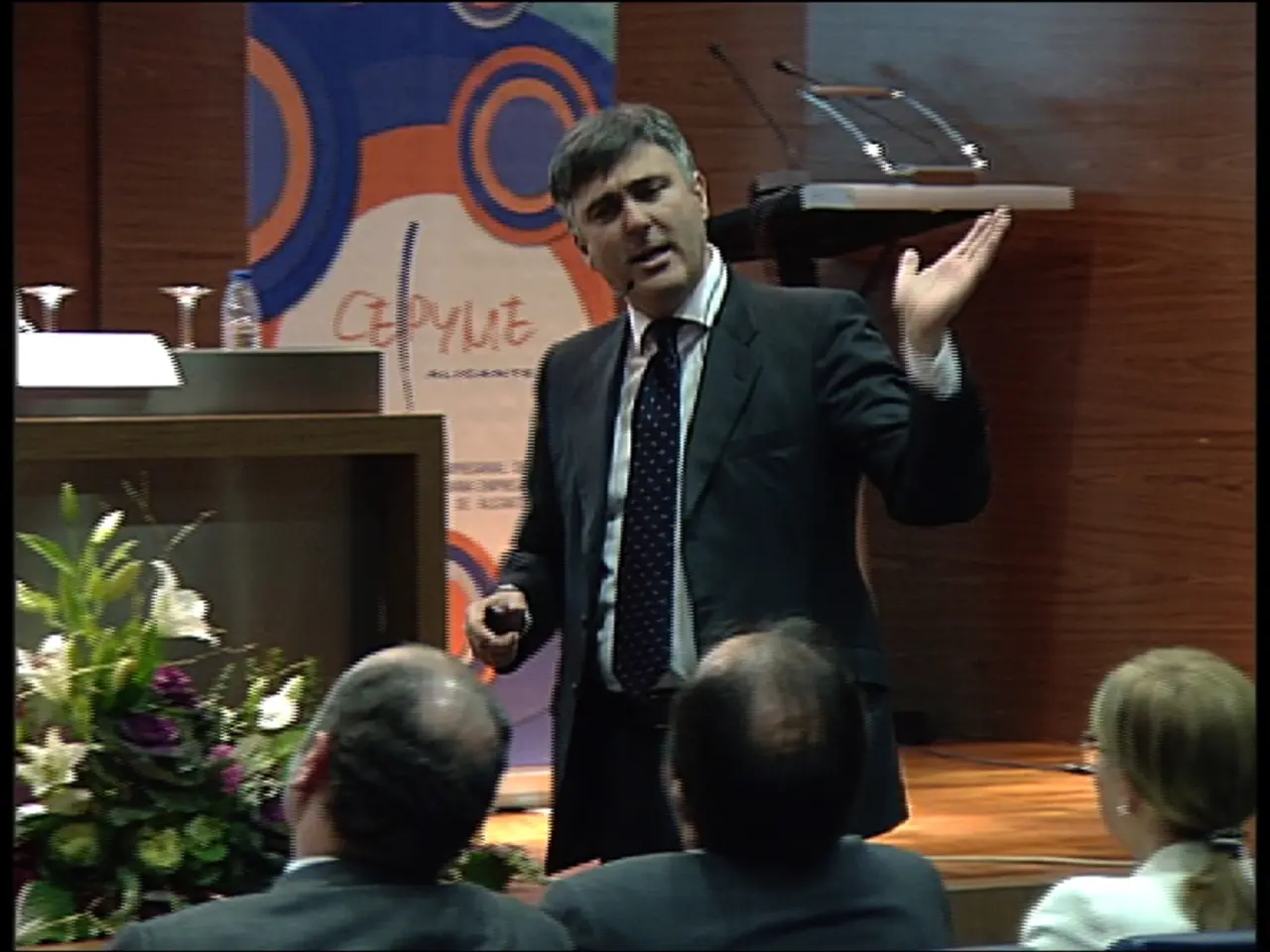Renowned theatre director Claus Peymann passes away
Claus Peymann, a titan of the German theater, passed away on Wednesday at the age of 88 in Berlin-Köpenick. Known for his unyielding championing of the freedom of art and provocative style, Peymann left an indelible mark on the German-speaking theater landscape.
Born in Bremen in 1937, Peymann's passion for the theater remained steadfast throughout his illustrious career. He began working as a dramaturg and assistant director in smaller regional theaters in the early 1960s, including the Theater am Turm in Frankfurt.
In 1966, Peymann became the chief director at the Theater am Turm, premiering works such as Peter Handke's "Offending the Audience" and "Kaspar," as well as Gerlind Reinshagen's "Doppelkopf." His tenure there marked the beginning of a fruitful collaboration with Handke, who's works Peymann often premiered throughout his career.
Peymann's career took a significant turn in 1971 when he co-founded the Schaubühne with Peter Stein at Hallesches Ufer in Berlin. It was here that he directed the premiere of Handke's "Ride Across Lake Constance."
Throughout the 1970s and 1980s, Peymann held notable positions at the Württemberg State Theaters in Stuttgart and the Schauspielhaus in Bochum, where he directed productions like "The Robbers," "Käthchen of Heilbronn," and "Iphigenia."
In 1986, Peymann took the helm at the Burgtheater in Vienna, focusing on new Austrian plays and hosting directors like Giorgio Strehler. This period included the controversial premiere of Thomas Bernhard's "Heldenplatz" in 1988.
From 1999 to 2017, Peymann served as the intendant of the Berliner Ensemble, where he made headlines with his political statements and actions, including showing solidarity with playwright Peter Handke when the author faced criticism for his sympathy towards Serbia.
During his tenure at the Berliner Ensemble, Peymann celebrated audience records and collaborated with authors such as Thomas Bernhard, Thomas Brasch, Botho Strauß, Peter Turrini, George Tabori, and Elfriede Jelinek.
Actor Sabin Tambrea, who worked with Peymann, wrote on Instagram that Peymann shaped the German-speaking theater landscape like a primal force. Tambrea also thanked Peymann from the bottom of his heart for their shared journey.
Culture State Minister Wolfram Weimer stated that Peymann was a titan of the theater, a master of provocation and renewal. Berlin's governing mayor, Kai Wegner, called Peymann one of the most influential personalities in modern German theater, describing him as a contentious spirit and a great theater maker. Kai Wegner also stated that Peymann significantly shaped Berlin's culture.
At the former Brecht Theater on the Schiffbauerdamm, Peymann was known as the "thorn in the side of the powerful." Peymann was never one to mince words and often spoke his mind, making headlines off-stage with his political statements and actions.
However, Peymann's classic productions were sometimes criticized for being stale. One such controversy arose in 2008 when Peymann offered a traineeship to a former RAF terrorist, Christian Klar, at his theater.
Peymann's legacy will undoubtedly continue to influence the German theater landscape, as he remains an unyielding champion of the freedom of art and a master of provocation and renewal. His memorable quote, "One cannot be bored in my presence, but of course, I am not easy to bear either," encapsulates his unique and impactful approach to theater.
Celebrities from the German-speaking theater landscape will mourn the loss of Claus Peymann, as he was known to have shaped the theater scene like a primal force.His unyielding championing of the freedom of art and provocative style, as well as his memorable quote, "One cannot be bored in my presence, but of course, I am not easy to bear either," made him a master of provocation and renewal in the entertainment industry.







